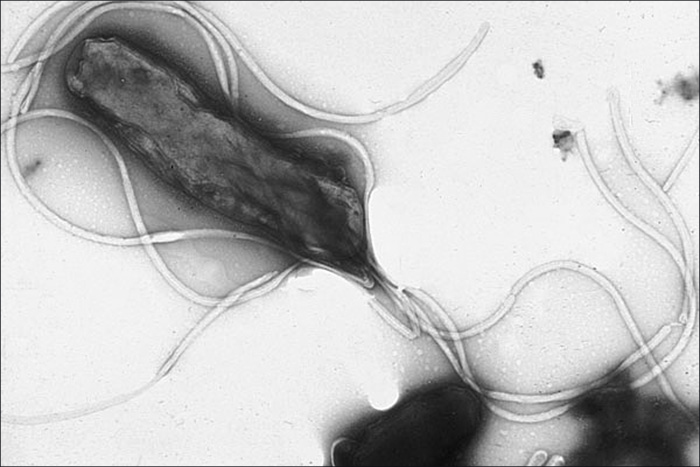40% higher dementia risk linked to persistent sleep struggles, researchers warn
09/16/2025 / By Cassie B.

- Chronic insomnia lasting at least three nights a week for three months or more increases dementia risk by 40% and accelerates brain aging by 3.5 years, according to a Mayo Clinic study.
- Participants with untreated insomnia showed more amyloid plaques and white matter damage—key markers of Alzheimer’s—along with steeper memory declines, especially those with genetic risk factors.
- The study found 14% of chronic insomniacs developed dementia or cognitive impairment, compared to 10% of those without sleep issues, even after adjusting for age, blood pressure, and sleep apnea.
- Prescription and over-the-counter sleep aids fail to improve long-term sleep quality and may worsen cognitive decline, yet doctors continue pushing pills instead of addressing root causes like stress, diet, and toxin exposure.
- Natural solutions—magnesium optimization, EMF reduction, circadian rhythm restoration, and caffeine elimination—can reverse insomnia safely, but the medical system remains slow to prioritize them over profitable pharmaceuticals.
A new study from the Mayo Clinic reveals the real cost of chronic sleep deprivation: a 40% higher risk of dementia. The research, published in the journal Neurology, tracked 2,750 older adults for nearly six years and found that those suffering from insomnia at least three nights a week for three months or more experienced faster cognitive decline and brain damage visible on scans that was equivalent to 3.5 extra years of aging.
This isn’t just about feeling groggy the next morning. “Insomnia doesn’t just affect how you feel the next day—it may also impact your brain health over time,” warned Dr. Diego Z. Carvalho, the study’s lead author. The findings suggest that untreated insomnia could be an early warning sign of dementia, with participants showing more amyloid plaques (toxic proteins linked to Alzheimer’s) and white matter damage, which are hallmarks of cognitive decline.
The hidden brain toll of sleepless nights
The study exposed a dramatic divide: 14% of chronic insomniacs developed dementia or mild cognitive impairment, compared to just 10% of those without sleep issues. Even after adjusting for factors like age, blood pressure, and sleep apnea, the risk remained 40% higher in a statistic that should alarm the 12% of Americans already diagnosed with chronic insomnia.
Worse yet, those who reported getting less sleep than usual at the start of the study had lower cognitive scores—as if their brains were four years older—and more signs of preclinical dementia. Meanwhile, participants with the APOE ?4 gene (a known Alzheimer’s risk factor) saw steeper memory declines, proving that insomnia compounds genetic vulnerabilities.
Big Pharma’s sleeping pill scam won’t fix this
The medical establishment has long treated insomnia as a nuisance rather than a neurological time bomb. Yet this study confirms what natural health advocates have warned for years: Artificial sleep aids mask symptoms while the brain deteriorates. The solution? Addressing root causes—stress, poor diet, blue light exposure, and toxin overload—rather than popping pills that come with their own cognitive side effects.
The Mayo Clinic’s findings align with earlier research linking poor sleep to heart disease, obesity, and inflammation, all of which accelerate brain aging. “Sleep isn’t just about rest—it’s about brain resilience,” Carvalho emphasized. Yet how many doctors prescribe lifestyle changes over profitable pills? How many warn patients that chronic insomnia could be shrinking their brains?
A wake-up call for America’s sleep crisis
With 60 million Americans suffering from sleep disorders, this study is a red alert. The good news? Natural interventions work. Cutting out caffeine, optimizing magnesium levels, reducing EMF exposure, and restoring circadian rhythms with sunlight and darkness therapy can reverse insomnia without Big Pharma’s toxic crutches.
But the clock is ticking. “Our results reinforce the importance of treating chronic insomnia—not just to improve sleep quality but potentially to protect brain health as we age,” Carvalho said. The question is: Will the medical system listen, or will it keep pushing pills while dementia rates skyrocket?
One thing is clear: your brain’s future depends on the sleep you get tonight.
Sources for this article include:
Submit a correction >>
Tagged Under:
Alzheimer's, brain function, brain health, dementia, insomnia, longevity, mind body science, prevention, sleep
This article may contain statements that reflect the opinion of the author





















